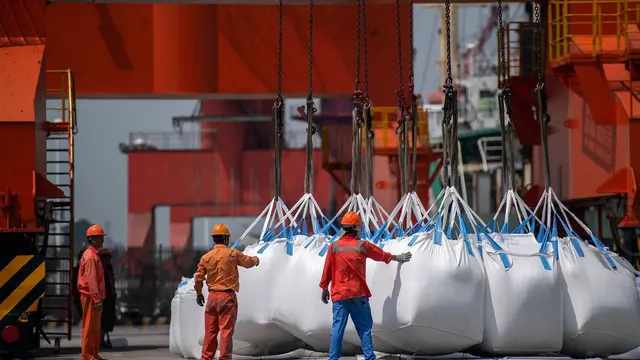Turkey's two years long peace process to settle the country's Kurdish problem has hit a roadblock over violence in Turkey's predominantly Kurdish southeast.
"The Kurdish peace process is at a very delicate point and it could go either way," warned Amanda Paul, analyst on Turkey.
"If this process dies, Turkey can expect a return to violence and bloodshed, and a very negative blowback from its Kurdish population," she added.
Turkey's leaders have also turned to the nationalistic discourse in the aftermath of violent events that claimed the lives of some 40 people in October.
"If you caused the killing of 40 people on the streets, you have nothing to do with a peaceful solution," said Turkish President Recep Tayyip Erdogan last week.
The Turkish president's remarks were in response to Selahattin Demirtas, the leader of pro-Kurdish Democratic Peoples' Party (HDP) , who said the process could come to an end.
The peace process was already in tatters due to failure of laying down arms by militants belonging to the outlawed Kurdish Workers' Party (PKK) and the government's reluctance to move forward with providing broader rights for Kurds.
It was further shaken by the bloody protests over the Syrian city of Ayn al-Arab, also know as Kobane, in northern Syria, where Kurds are fighting against the IS militants.
Turkey's unwillingness to help Kurds in Kobane prompted Turkey' s Kurds to take up the streets and to stage protest against the government in over 30 provinces.
Eventually Ankara agreed to let Kurdish Peshmarge fighters from Iraq's Kurdistan region to cross Turkish territory in order to join their brethren battling the IS.
The recent events led to the questioning of the secret agreement that was reportedly reached between the government and the PKK's jailed leader Abdullah Ocalan.
"This process is now going through a shaky period," Yasar Yakis, former foreign minister of Turkey said, referring to the killing of three soldiers and a village guard last month.
"Disarming the PKK fighters was to be done with a plan composed of steps to be taken simultaneously by the government and the Kurdish side. Both the government and the Kurdish leaders now blame each other for not abiding by the provisions of this agreement," he explained.
For others, the peace process was doomed to fail from the start because it did not involve all the stakeholders in society.
"Failing to be transparent and not creating mechanisms to ensure the involvement of different actors were the greatest impasses in the process," Turkish expert Cafer Solgun underlined.
Despite the remarks by the government to the opposite, he said there is no process at all considering the recent developments in Turkey.
Some believed the Kurdish problem represents the larger problem of democratic deficit in Turkey.
According to Sahin Alpay, professor of political science, Turkey has to provide democratic demands of the vast majority of Kurds by adopting a new and democratic constitution, recognizing the right to education in one's mother tongue and the right to administrative autonomy not only for Kurdish but all regions of the country.
Some analysts pointed out the upcoming national elections in June 2015 for the reason why the government is taking very slow in addressing Kurdish demands.
The fact that the nationalists have been on the rise in polls, the ruling Justice and Development Party (AKP) government, led by Prime Minister Ahmet Davutoglu, started to curry favor with the nationalist voters.
Lutfu Turkkan, the nationalist lawmaker, believed the ruling party has toughened up its rhetoric against the PKK with the hope of picking up nationalist votes in 2015 elections.
There were also reports that the Turkish military is quite at unease in the face of killings of Turkish soldiers by the PKK and senior generals expressed strong disapproval of government reluctance in cracking down on dissent at the National Security Board meeting chaired by Erdogan on Oct. 30.
Professor Dogu Ergil who wrote extensively on Turkey's Kurdish problem, said Kurds are still viewed as a "national security concern."
It was also reported that the ruling party lawmakers complained about the stalled peace process and the government's losing the control to the PKK in Kurdish region during a party convention in Afyon earlier this month.
Murat Yetkin, Turkish analyst, said the government has already placed some distance between itself and the HDP, the political wing of the PKK.
He quoted media reports that the government may be considering revisions to the roadmap that was agreed upon by Ocalan.
The PKK is listed as terrorist organization by Turkey, the United States and the European Union. The three decades-long conflict between the PKK and Turkish government has claimed the lives of some 40,000 people so far. Enditem
 简体中文
简体中文

